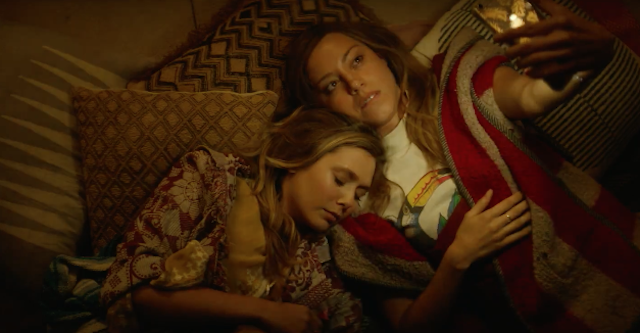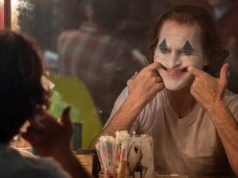
In “Ingrid Goes West,” a cautionary comedy about social-media fame, Aubrey Plaza (“Parks and Recreation”) plays an unstable woman fresh out of the mental ward who heads to California to stalk and befriend a minor Instagram celebrity, Taylor Sloane (Elizabeth Olsen), whose lifestyle looks appealing. We know it will end badly because we already saw how Ingrid’s last girl-crush ended: she crashed the woman’s wedding reception and pepper-sprayed the bride.
It’s good that the movie, directed by first-timer Matt Spicer from a screenplay he co-wrote with David Branson Smith, begins with Ingrid in psycho mode. That way, we’re not wondering “Will she go nuts?” as the story unfolds, but rather “How nuts will she go?” In the meantime, Ingrid is a socially awkward but otherwise fairly normal-seeming millennial, at least in public. Using the cash she has recently, conveniently inherited, she goes to Los Angeles and finds Taylor Sloane in the flesh simply by hanging around the places Taylor posts Instagram photos of. The next step is to ingratiate herself into Taylor’s life and become actual pals. Ingrid accomplishes this through flattery, practiced manipulation, and good old-fashioned stalker work (hiding behind a tree outside Taylor’s house, eating In-n-Out from a bag).
Once Ingrid has established an amusingly uncomfortable and lopsided friendship with Taylor and her starving-artist husband, Ezra (Wyatt Russell), the movie adds a 21st-century twist to the “Single White Female” theme: Taylor, the object of Ingrid’s adoration, is a vapid, shallow L.A. phony, the sort of person who speaks only in hyperbole and has never read the smart-sounding books she mentions. “You are amazing! I love you so much, you’re my favorite person ever!” Taylor says to Ingrid the first time they hang out, repeating what she probably said to the Whole Foods cashier yesterday. (Ezra describes his wife’s personality as “exhausting.”) What happens when someone whose statements are never meant literally meets someone who’s desperate for approval? Or, more broadly, what happens when someone who views superficial social-media fame as the pinnacle of success moves to the most superficial city in America?
Spicer and Smith find humor in L.A.’s idiosyncrasies, like a touchy-feely restaurant called Grateful Kitchen where the question of the day on the menu board is, “What is your biggest emotional wound?” In the spirit of La La Land mockery comes the movie’s secret best asset: Ingrid’s new landlord, Dan Pinto (O’Shea Jackson Jr.), who, like everyone in L.A., wants to be a screenwriter. Specifically, he wants to write Batman sequels. Dan’s obsession with Batman is a silly counter-balance to the film’s darker humor, yet he’s also the most well-adjusted person in the movie. His easy-going friendship with Ingrid helps keep her down to earth (until it doesn’t) while providing us with a baseline for what constitutes “normal behavior” in this universe.
Plaza shows range beyond the taciturn goth she played on “Parks and Rec,” giving Ingrid complex emotions that prevent her from being nothing more than a punchline. Olsen’s depth as Taylor isn’t as surprising, though the fact that the character requires it is. There are more layers to both of these women than expected, raising the film from slim comedy to something more profound (albeit still very funny) about self-image and toxic friendships. And though the story turns grim (how could it not?), it stays within the acceptable mainstream limits of grimness, adeptly satirizing our modern definition of “fame” with an ending that satirizes our modern idea of “happiness.” See it with someone you Like.
B+ (1 hr., 37 min.; )





